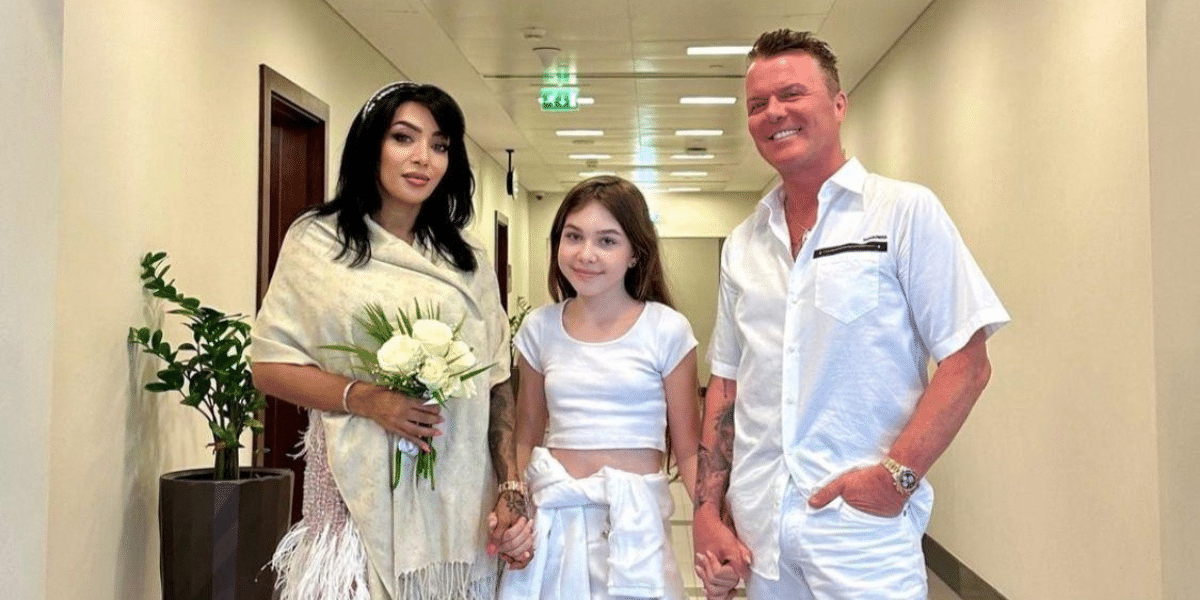By: PR Fueled
Divorce, a process that drains emotions and often takes a long time, can now be handled more clearly thanks to the Abu Dhabi Civil Family Court. big names Prinz Marcus von Anhalt and Prinzessin Masoumeh von Anhalt chose this groundbreaking system to end their marriage. They agreed to split up together, which helped make things go —something the fast and responsive Abu Dhabi system made easier.
A Fresh Take on Divorce
Unlike divorce cases in other parts of the world, like England, where the process can drag on for months, the Abu Dhabi Civil Family Court has changed how people handle these personal matters. This up-to-date system, made to serve a mixed group of expats, helps people with a smooth and online process. The court holds hearings in English and Arabic and lets foreign lawyers stand for their clients, making sure people can sort out their marriage problems without too much worry.
Prinz Marcus and Prinzessin Masoumeh’s choice to use this court shows how more expats want a quick and easy way to end their marriages. Both of them feel good about what’s next and plan to stay friends. They’ll work together to raise their child, Princess Shanaya, in a good way. The court made a big choice to give the couple equal time with Princess Shanaya. This shows they know the child needs both her dad and mom to grow up happy. This fair plan for taking care of Shanaya proves the court cares about kids during divorce. It puts the child’s needs first.
A 30-Day Journey to Inspire Transformation
What sets the Abu Dhabi system apart is its remarkable efficiency. The divorce process is typically completed in around 30 days, offering a much shorter timeline compared to what is often seen in other countries. In Germany, for instance, couples must live separately for a full year before even filing for divorce. After that, the legal process can take another four to six months, meaning it could take up to 18 months to finalize the separation. This extended timeline can add unnecessary emotional strain and prevent individuals from moving forward with their lives.
The Abu Dhabi Civil Family Court uses a system that’s digital cutting down on how much the court needs to step in. People can do most things online. This makes it easy for everyone to use, no matter what language they speak or how much they know about the law. Byron James, who knows a lot about law, said, “The Abu Dhabi Civil Family Court provided an ideal forum for this matter. Its efficiency and clarity helped ensure the process remained amicable and without unnecessary delays.”
This matters a lot in cases like Prinz Marcus and Prinzessin Masoumeh, where both wanted to get on with their lives fast and on good terms. The court’s knack for handling the issue well, including the fair custody plan for Princess Shanaya, helped them do that.
A Global Benchmark for Getting Things Done
The way divorce cases are managed in Abu Dhabi, compared to places like England, raises broader discussions about the need for changes in today’s legal systems. In England, the process can often take time, with busy courts leading to delays that many find frustrating. Individuals going through a divorce may experience a lengthy process, which can add to the emotional stress of an already challenging situation.
Both systems incorporate technology to assist, but Abu Dhabi has made notable strides in integrating it into their processes. While English courts may face challenges in balancing technology with a personal approach, Abu Dhabi has developed a system that effectively combines both. The courts there aim to address and resolve procedural matters efficiently, which may reduce some of the delays experienced in other legal systems.
For people from other countries like Marcus and Masoumeh, this system gives them a straightforward and kind way to get on with their lives. They can do everything online, in a language they know, with little need to go to court. This approach makes the Abu Dhabi Civil Family Court an appealing option for many individuals.
An Up-to-Date Legal System for a World City
Abu Dhabi’s Civil Family Court doesn’t just work well—it welcomes everyone. The court knows its people come from all over, so it works in both English and Arabic. It even lets lawyers from other countries speak for their clients. This matters a lot in a world city like Abu Dhabi, where people from abroad make up a big part of the community.
The court’s approach shows a worldwide view on justice where easy access and fairness come first. For people living abroad who might struggle with complex legal systems far from their home countries, this inclusion is key. The chance to grasp the process, no matter what language you speak or where you’re from makes sure all parties feel in control and well-informed.
A Model for Tomorrow
As more well-known figures like Prinz Marcus and Prinzessin Masoumeh pick the Abu Dhabi Civil Family Court to end their marriages, it’s clear that this system is raising the bar. In a world that values time and emotional health more and more, Abu Dhabi’s way of handling divorce offers a model for how legal systems can grow to better help individuals.
For couples seeking to resolve their marriage issues, Abu Dhabi’s 30-day process offers a structured and timely resolution, which can help provide a sense of closure and peace. The court’s choice to give equal custody of Princess Shanaya to both parents also shows its dedication to put children’s emotional needs first in these delicate cases.
Reflecting on his experience, Prince Marcus von Anhalt shared, “In some countries like Germany, the divorce process can take well over a year due to separation requirements and additional delays. You end up in limbo for 18 months, unable to truly move forward with your life. The Abu Dhabi system allowed us to make a clean break and focus on our personal growth while co-parenting in a harmonious environment. Time is our most valuable asset, and this process respects that.”
In a world where divorce often means long court fights, the Abu Dhabi Civil Family Court stands out as an example of what’s possible: a system that cares about the well-being of its people while giving out justice and . For those dealing with the tricky parts of divorce, it offers a good option instead of the delays and annoyances of more old-fashioned legal systems.
Disclaimer: “The content in this article is provided for general knowledge. It does not constitute legal advice, and readers should seek advice from qualified legal professionals regarding particular cases or situations.”
Published by: Annie P.

















